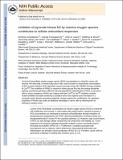| dc.contributor.author | Vander Heiden, Matthew G. | |
| dc.contributor.author | Anastasiou, Dimitrios | |
| dc.contributor.author | Poulogiannis, George | |
| dc.contributor.author | Asara, John M. | |
| dc.contributor.author | Boxer, Matthew B. | |
| dc.contributor.author | Jiang, Jian-kang | |
| dc.contributor.author | Shen, Min | |
| dc.contributor.author | Gary, Bellinger | |
| dc.contributor.author | Sasaki, Atsuo T. | |
| dc.contributor.author | Locasale, Jason W. | |
| dc.contributor.author | Auld, Douglas S. | |
| dc.contributor.author | Thomas, Craig J. | |
| dc.contributor.author | Cantley, Lewis C. | |
| dc.contributor.author | Bellinger, Gary | |
| dc.date.accessioned | 2013-09-27T13:09:40Z | |
| dc.date.available | 2013-09-27T13:09:40Z | |
| dc.date.issued | 2011-11 | |
| dc.date.submitted | 2011-07 | |
| dc.identifier.issn | 0036-8075 | |
| dc.identifier.issn | 1095-9203 | |
| dc.identifier.uri | http://hdl.handle.net/1721.1/81210 | |
| dc.description.abstract | Control of intracellular reactive oxygen species (ROS) concentrations is critical for cancer cell survival. We show that, in human lung cancer cells, acute increases in intracellular concentrations of ROS caused inhibition of the glycolytic enzyme pyruvate kinase M2 (PKM2) through oxidation of Cys[superscript 358]. This inhibition of PKM2 is required to divert glucose flux into the pentose phosphate pathway and thereby generate sufficient reducing potential for detoxification of ROS. Lung cancer cells in which endogenous PKM2 was replaced with the Cys[superscript 358] to Ser[superscript 358] oxidation-resistant mutant exhibited increased sensitivity to oxidative stress and impaired tumor formation in a xenograft model. Besides promoting metabolic changes required for proliferation, the regulatory properties of PKM2 may confer an additional advantage to cancer cells by allowing them to withstand oxidative stress. | en_US |
| dc.description.sponsorship | National Institutes of Health (U.S.) (R03MH085679) | en_US |
| dc.description.sponsorship | National Institutes of Health (U.S.) (1P30CA147882) | en_US |
| dc.description.sponsorship | Burroughs Wellcome Fund | en_US |
| dc.description.sponsorship | Damon Runyon Cancer Research Foundation | en_US |
| dc.description.sponsorship | Smith Family Foundation | en_US |
| dc.description.sponsorship | Starr Cancer Consortium | en_US |
| dc.language.iso | en_US | |
| dc.publisher | American Association for the Advancement of Science (AAAS) | en_US |
| dc.relation.isversionof | http://dx.doi.org/10.1126/science.1211485 | en_US |
| dc.rights | Creative Commons Attribution-Noncommercial-Share Alike 3.0 | en_US |
| dc.rights.uri | http://creativecommons.org/licenses/by-nc-sa/3.0/ | en_US |
| dc.source | PubMed Central | en_US |
| dc.title | Inhibition of Pyruvate Kinase M2 by Reactive Oxygen Species Contributes to Cellular Antioxidant Responses | en_US |
| dc.type | Article | en_US |
| dc.identifier.citation | Anastasiou, D., G. Poulogiannis, J. M. Asara, M. B. Boxer, J.-k. Jiang, M. Shen, G. Bellinger, et al. “Inhibition of Pyruvate Kinase M2 by Reactive Oxygen Species Contributes to Cellular Antioxidant Responses.” Science 334, no. 6060 (December 1, 2011): 1278-1283. | en_US |
| dc.contributor.department | Massachusetts Institute of Technology. Department of Biology | en_US |
| dc.contributor.department | Koch Institute for Integrative Cancer Research at MIT | en_US |
| dc.contributor.mitauthor | Vander Heiden, Matthew G. | en_US |
| dc.contributor.mitauthor | Bellinger, Gary | en_US |
| dc.relation.journal | Science | en_US |
| dc.eprint.version | Author's final manuscript | en_US |
| dc.type.uri | http://purl.org/eprint/type/JournalArticle | en_US |
| eprint.status | http://purl.org/eprint/status/PeerReviewed | en_US |
| dspace.orderedauthors | Anastasiou, D.; Poulogiannis, G.; Asara, J. M.; Boxer, M. B.; Jiang, J.-k.; Shen, M.; Bellinger, G.; Sasaki, A. T.; Locasale, J. W.; Auld, D. S.; Thomas, C. J.; Vander Heiden, M. G.; Cantley, L. C. | en_US |
| dc.identifier.orcid | https://orcid.org/0000-0002-6702-4192 | |
| mit.license | OPEN_ACCESS_POLICY | en_US |
| mit.metadata.status | Complete | |
